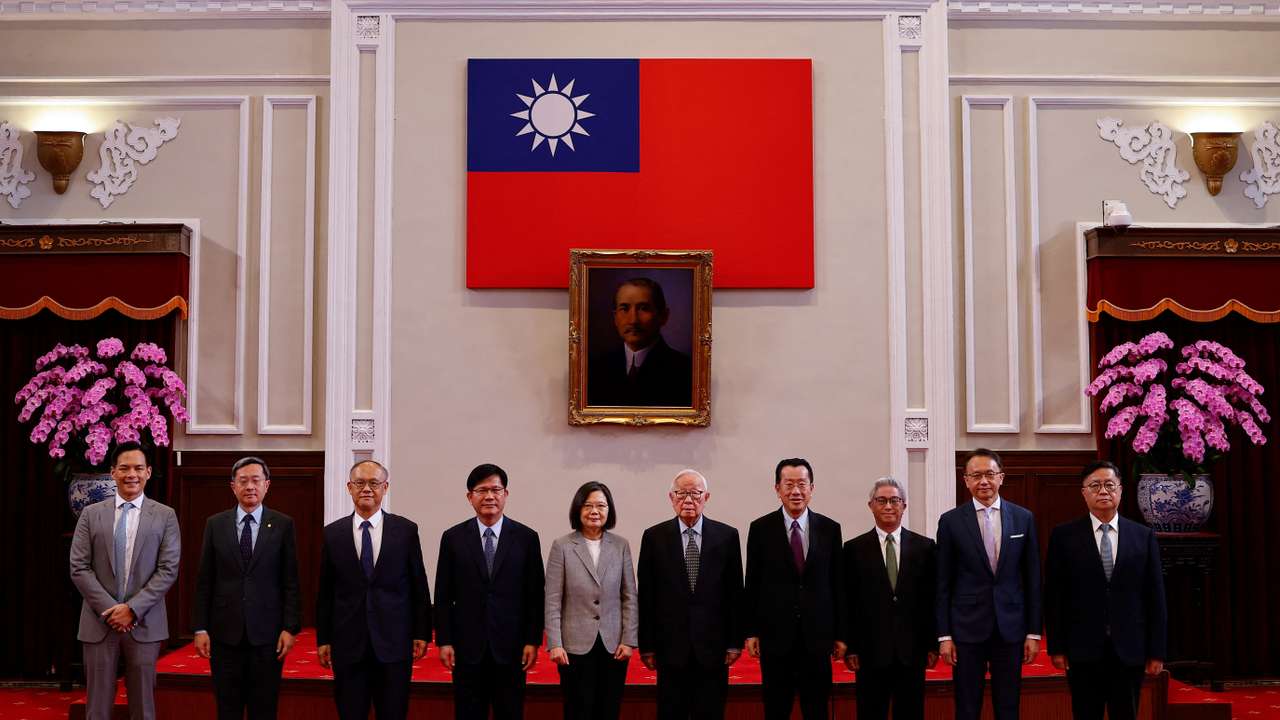Taiwan's opposition parties join forces to form a united presidential ticket vs leading candidate

Taiwan's two main opposition parties on Wednesday committed to resuming talks with China and reached an agreement to finalize a decision on a joint presidential ticket for the upcoming January elections. Meanwhile, the ruling Democratic Progressive Party (DPP), currently leading in polls, criticized interference from Beijing.
According to a report from Reuters, the overarching issue of China's claim to Taiwan, considering it as part of its territory, significantly influences the parliamentary and presidential elections scheduled for January 13.
China has increased military and political pressure to assert its sovereignty claim, a stance firmly rejected by Taiwan, leading to heightened tensions and military exercises.
Vice President Lai Ching-te, the DPP's presidential candidate, consistently holds the lead in opinion polls, leaving the candidates of the main opposition Kuomintang (KMT), Hou Yu-ih, and the Taiwan People's Party (TPP), Ko Wen-je, vying for second place.
The KMT and TPP, engaged in discussions for a united presidential bid since last month, struggled to agree on the selection process for the presidential candidate and running mate. Following talks facilitated by former president Ma Ying-jeou, a senior KMT member, the parties decided to use opinion polls conducted between November 7 and this Friday to determine the composition of the presidential bid, with the results to be announced on Saturday.
"No matter what, whoever is the lead and whoever is the deputy, everyone will work together," Hou said.
"The cooperation isn't only just between the KMT and the TPP. It will unite Taiwan.”
China cut off routine talks with Taiwan after President Tsai Ing-wen of the DPP took office in 2016. The two opposition parties have vowed to pursue dialogue with China, on an equal and dignified basis, and "restore peace and stability in the Taiwan Strait".
Chen Yi-fan, an assistant professor of diplomacy and international relations at Taiwan's Tamkang University, noted that collaboration between Hou and Ko is crucial to pose a challenge to Lai. He emphasized the shared interest of the U.S. and China in stabilizing Taiwan Strait relations.
As the talks unfolded, the DPP accused Ma of taking instructions from China, given the head of Ma's foundation, Hsiao Hsu-tsen, visited Beijing this month. The DPP asserted that China's Communist Party aims to undermine the DPP.
"It is not baseless to say, as Vice President Lai has repeatedly done so, that it is China's communist party which most wants to take down the DPP," the party said in a statement.
Hsiao countered this, stating that his visit to Beijing was for an academic forum. China opposes Lai, considering him a separatist, while Lai maintains that Taiwan's people alone can determine their future and has repeatedly offered talks with Beijing, which have been rejected.
The DPP champions Taiwan's distinct identity from China, while some polls suggest that a collaboration between Hou and Ko could surpass Lai and his presumed running mate, Hsiao Bi-khim.
The KMT holds more significant representation in parliament than the TPP, controlling 38 of 113 seats to the TPP's five.
A fourth candidate, Terry Gou, the billionaire founder of Apple supplier Foxconn, is also running for president. Although he has called for opposition unity against the DPP, the KMT and TPP did not mention him in their announcement to collaborate. Candidates have until next week Friday to register with the election commission.